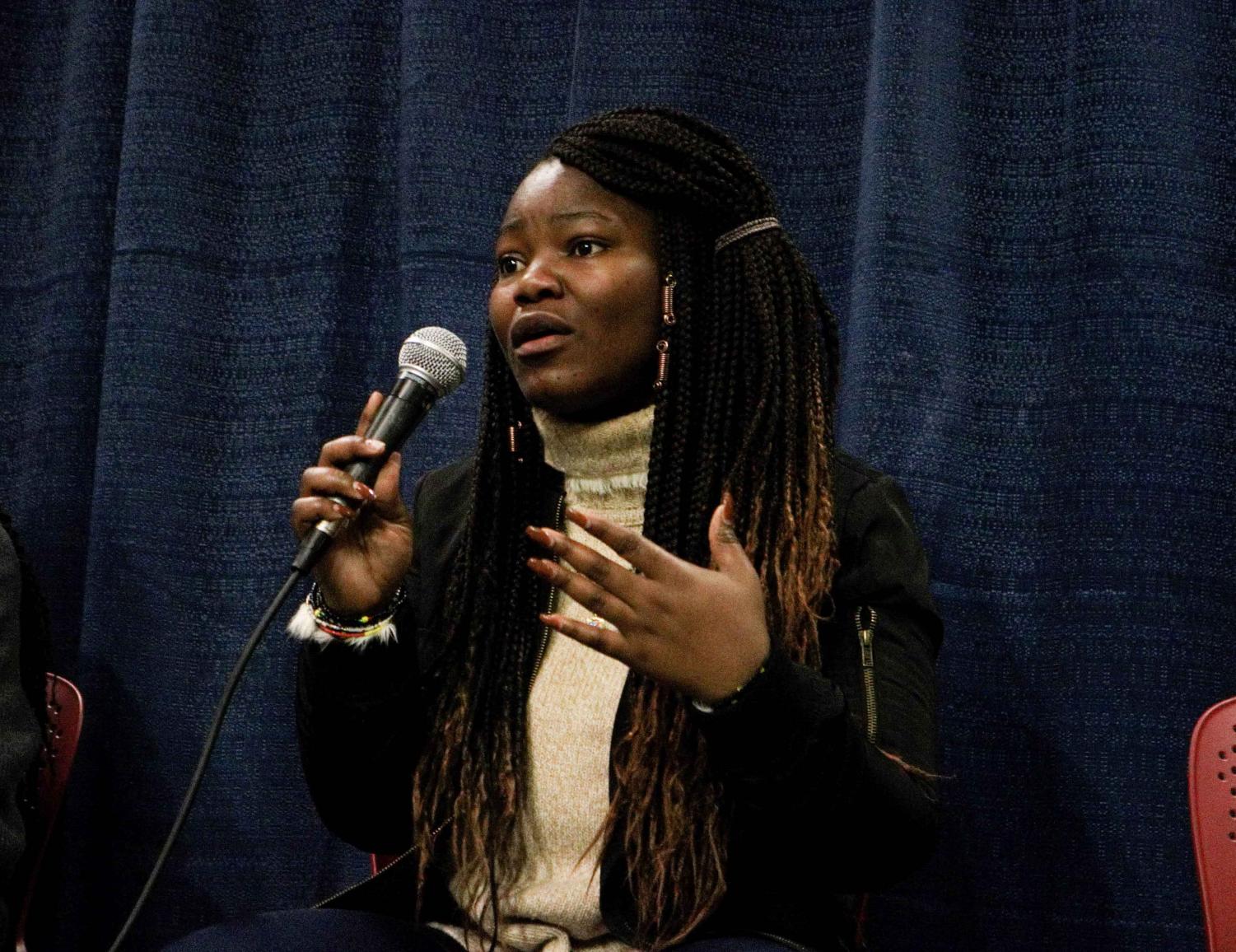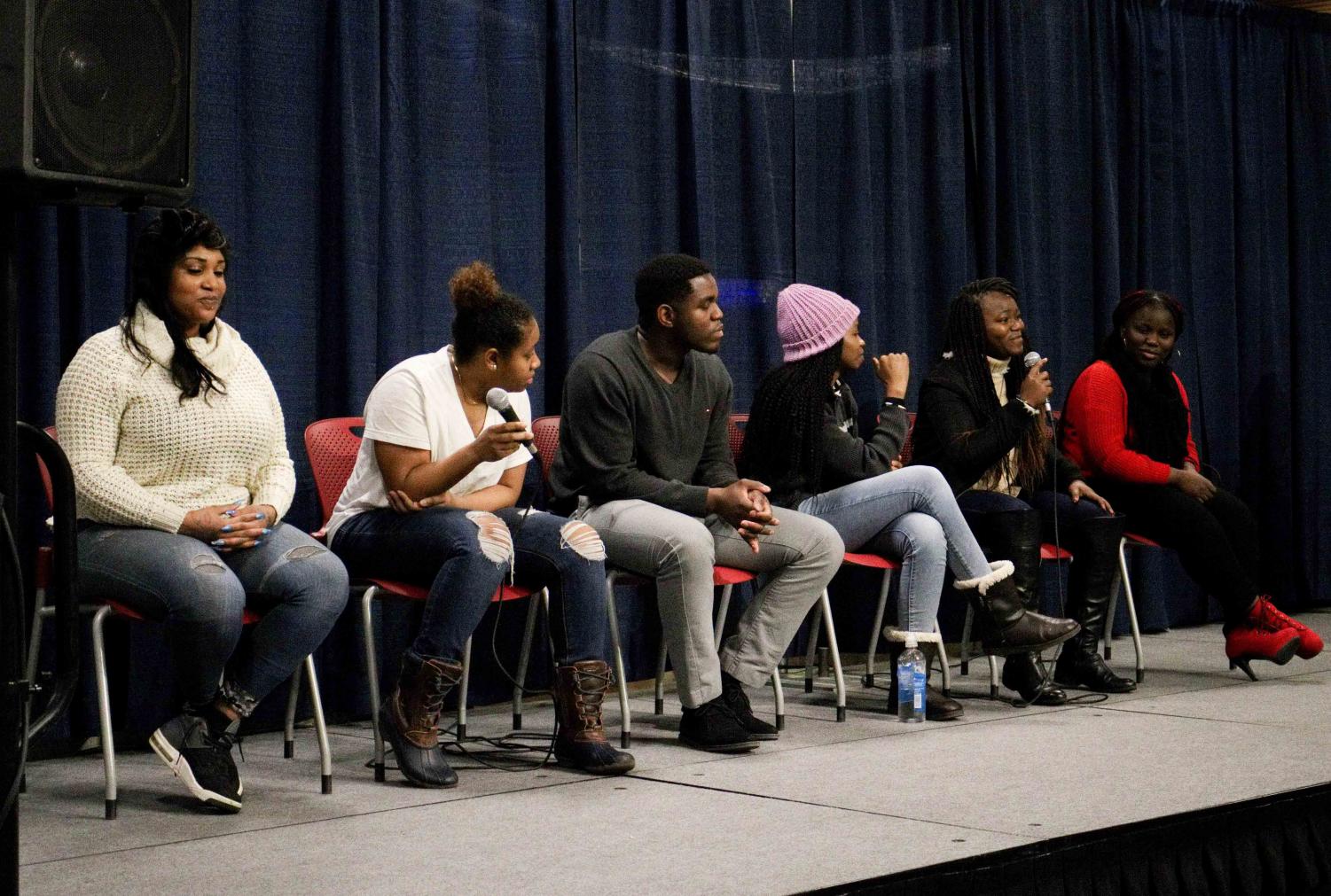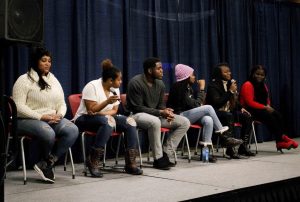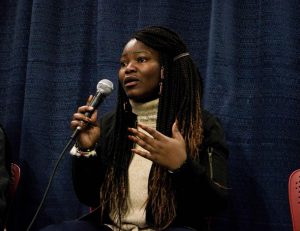Same, Same, Different: AU and BSU
Feb 8, 2018
This past Monday, Feb. 5, the UNI Black Student Union (BSU) and African Union (AU) came together to hold a panel discussion called “Same, Same, Different,” in the Maucker Union Coffeehouse.
Students gathered to discuss the similarities and differences between African and African American cultures.
The panel was comprised of five members from both the AU and BSU and was facilitated by Melanie Majeed, a senior marketing, advertising and digital media major.
“As an African, I just wanted to know what African Americans think about Africans in general,” said Winnie Akinyi, a graduate education psychology major.
The discussion topics at this panel ranged from Marvel Studios’ upcoming “Black Panther” film to the disconnect between Africans and African Americans; there were also many different questions asked from students in attendance.
One of the discussion topics was the different effects of slavery on the two groups: Africans and African Americans.
This topic elicited lively discussion among the various panelists, who eventually came to the conclusion that slavery is always going to keep a divide between African Americans and Africans or any other culture.
The panelists discussed how the slavery that African Americans went through is completely different than what Africans had to endure.
They discussed how Africans only knew that their families had been taken away from them, and that they had no idea when they would come back. Conversely, African Americans have had to deal with slavery for decades and continue to deal with other systematic forms of slavery today.
“The Africans are fighting a completely different type of struggle,” said one of the panelists.
The panelists went on to discuss how many Africans had to deal with extreme poverty, along with the loss of their family members to the slave trade. They said that is why, for Africans, it is important to know where they come from.
There were some audience questions that differed from the main discussion topic.
One audience question was, “Do you believe the system in America has changed since slavery and Jim Crow or does it just have a new face?”
The panelists also deliberated on this question, and their overall main sentiment was that nothing has changed; it just has a new face.
“It’s gotten worse. They’ve just gotten better at covering it up,” said one of the panelists.
“The poorer you are, the less funding you get [and] the more you are going to be in poverty,” said another one of the panelists.
The panelists then went on to discuss media and the effect it has on the black community. They said that there needs to be more black representation in the media. In addition, the panelists agreed that increased media representation would have a positive effect on future generations.
The final discussion topic was tied back to the overall discussion on the disconnect between Africans and African Americans.
The panelists stated that knowledge about the different cultures will break the divide and, in addition, research and mentorship will help with the knowledge about different cultures.
“I really hope that people learned that although there are differences and similarities between African Americans and Africans, we are really just one person that got stripped away from each other,” Tulia Mulibinge said. “Understanding each other is the beginning of working together.”











